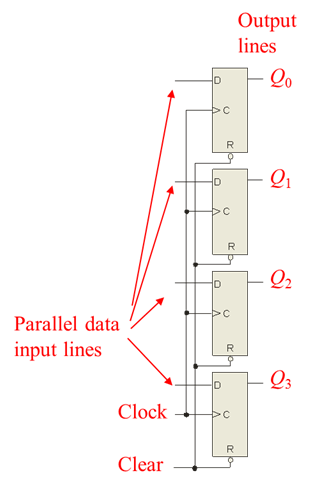Principal flip-flop applications are for temporary data storage, as frequency dividers, and in counters.
Typically, for data storage applications, a group of flip-flops are connected to parallel data lines and clocked together. Data is stored until the next clock pulse.

For frequency division, it is simple to use a flip-flop in the toggle mode or to chain a series of toggle flip flops to continue to divide by two.
One flip-flop will divide fin by 2, two flip-flops will divide fin by 4 (and so on). A side benefit of frequency division is that the output has an exact 50% duty cycle.
